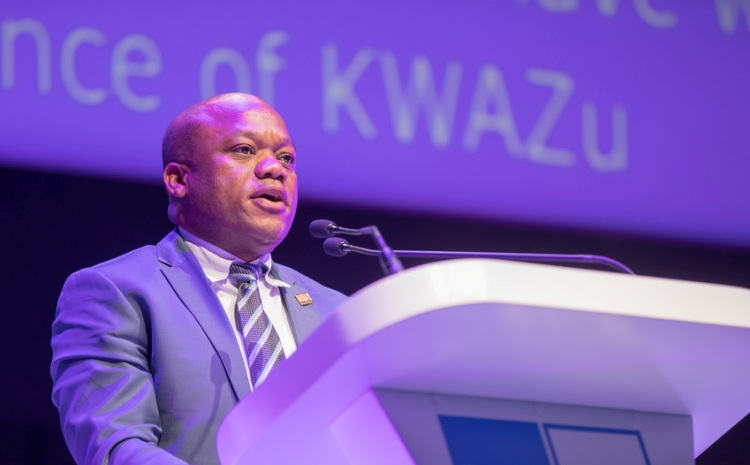Plans Advance for New Small Harbour in Ray Nkonyeni to Boost Local Economy
In a move to further leverage KwaZulu-Natal’s extensive coastline, the DPWI is currently assessing locations for a second small harbour in the province.

- Country:
- South Africa
South Africa’s efforts to drive inclusive economic development and infrastructure transformation are gaining momentum as plans progress for the construction of a small harbour in KwaZulu-Natal’s Ray Nkonyeni District Municipality. This major infrastructure initiative, spearheaded by the Department of Public Works and Infrastructure (DPWI), is set to stimulate local economic growth, support coastal industries, and create thousands of work opportunities, according to Deputy Minister Sihle Zikalala.
Speaking on the second day of the Umdoni Municipality Investment Conference held in Scottburgh, Zikalala reaffirmed the government’s commitment to uplifting historically marginalised coastal communities and supporting small, micro, and medium enterprises (SMMEs) through strategic infrastructure development.
“This harbour will not only serve as a boat launching site, but will also include fisheries and related economic facilities,” Zikalala stated. “It is a deliberate investment in a region that was previously excluded from such development under apartheid.”
A Game-Changer for Ray Nkonyeni District
The proposed harbour project will include:
-
A boat launching facility
-
Fisheries infrastructure
-
Support services for marine-based economic activities
-
Potential docking and maintenance infrastructure
This development is envisioned to become a marine economy hub, opening up opportunities for local businesses, fishermen, cooperatives, and entrepreneurs. It will also improve logistical and commercial access to marine resources, which are vital for regional economic diversification and job creation.
The Small Harbour Development Programme is part of a broader national initiative targeting coastal provinces—KwaZulu-Natal, Eastern Cape, and Northern Cape—that were historically left behind in infrastructure planning and investment.
Job Creation and Enterprise Development
Deputy Minister Zikalala emphasized that the harbour will play a pivotal role in employment creation, particularly in coastal communities that often face high rates of youth unemployment and limited economic opportunities.
“This harbour project is not just an infrastructure investment—it is an economic stimulus package for this region. It will create thousands of work opportunities directly and indirectly,” he said.
Government intends to maximise local procurement, favouring community-based contractors and labourers, and ensuring that townships and rural entrepreneurs are integrated into the value chain through supply, logistics, and services associated with harbour operations.
Infrastructure Investment as a Catalyst
Zikalala reiterated the state’s focus on rebuilding and maintaining critical public infrastructure—including roads, bridges, dams, and digital infrastructure such as fibre networks—to support SMMEs and stimulate localised industrialisation.
“Working with municipalities, we want to build technical and project management capacity to maintain and upgrade our infrastructure,” he said. “We must prioritise infrastructure in budgeting, and we are determined to allocate resources to preserve ageing infrastructure and prevent disasters.”
He noted the increasing need to align infrastructure with climate resilience, sustainability, and economic inclusion.
Second Harbour Under Consideration
In a move to further leverage KwaZulu-Natal’s extensive coastline, the DPWI is currently assessing locations for a second small harbour in the province. This forms part of the Small Harbour Development Programme’s expansion strategy, aiming to optimise South Africa’s coastline for inclusive development.
The identification and development of strategic sites will consider economic viability, environmental impact, and alignment with local development plans.
Asset Optimisation Strategy: Private Sector Partnerships
The DPWI is also advancing its Asset Optimisation Strategy, a framework aimed at attracting private sector participation in the development and utilisation of public infrastructure.
This strategy invites the private sector to partner with government to develop state-owned immovable assets, with a build-operate-transfer (BOT) model that eventually returns upgraded assets to state ownership. This approach not only unlocks capital investment but also accelerates delivery and shared accountability.
Call to Action: Transformative Investment for a United Society
Zikalala urged both government institutions and private investors to contribute to projects that drive transformation, economic justice, and sustainable development.
“We need investments that do more than just build structures—we need investments that transform lives and communities,” he said. “Our aim is to give effect to a truly united, non-racial, non-sexist, democratic and prosperous society.”
He concluded by emphasizing that building inclusive economies requires joint efforts between state, business, and civil society to ensure that infrastructure serves as a tool for transformation, not just economic growth.
The Ray Nkonyeni harbour project represents more than a construction milestone—it is a symbol of inclusive development, coastal revitalisation, and hope for communities that have long awaited meaningful economic participation. With construction plans advancing and investigations for further developments underway, KwaZulu-Natal stands at the cusp of a marine economy renaissance—driven by smart investment, inclusive planning, and the promise of opportunity for all.
- READ MORE ON:
- Ray Nkonyeni
- small harbour development
- Sihle Zikalala
- DPWI
- KwaZulu-Natal infrastructure
- marine economy
- job creation
- SMME support
- South African government projects
- coastal development
- public-private partnerships
- township economy
- asset optimisation strategy
- inclusive growth
- Umdoni Investment Conference










